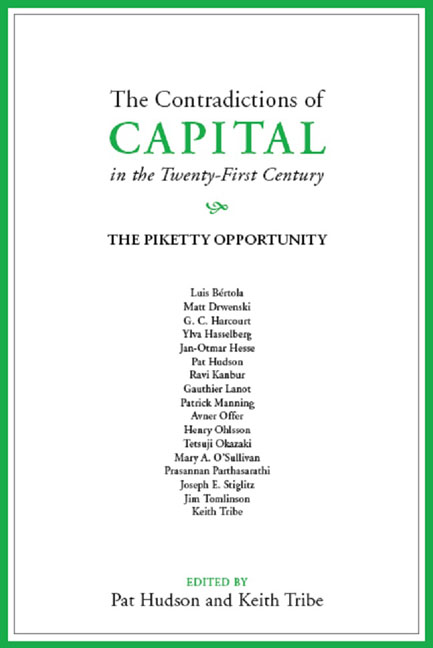8 - A Confusion of Capital in the United States
Published online by Cambridge University Press: 16 August 2023
Summary
The central issue addressed in Thomas Piketty’s Capital in the Twenty-First Century is the historical relationship between capital accumulation and inequality. It has gained widespread recognition, even notoriety, for its claim that capitalism systematically breeds inequality. Piketty’s authority in making that controversial claim derives from the extensive historical analysis that he offers of long-term trends in the accumulation of capital and the returns that it generates. Yet, even though these trends are of central importance in determining the plausibility of Piketty’s central thesis, his measurement and interpretation of capital’s role and rewards have received only limited attention.
In this chapter I present a critical analysis of the image that Piketty constructs of the history of capital in the US. The US economy, to its champions and its critics, is often seen as exemplifying all that is characteristic of capitalism. Therefore, if one is interested in learning about capital in capitalism, the history of the US is a promising source of insight. In my first section below I sketch the image that Piketty presents of historical trends in capital’s role in US history and explain how he constructs it. He does so by departing from an approach to defining and measuring capital that has become standard in economics today, and that is why the image of capital that he presents for the US is a distinctive one.
The novelty of Piketty’s treatment of capital raises the important question, which I address in my second section, of whether it makes conceptual sense. Specifically, is it consistent with the way he understands the economic role of capital and the rewards that accrue to it? In fact, Capital offers surprisingly little insofar as conceptualizing the economic role of capital is concerned, and, when it comes to understanding capital’s rewards, the book largely piggybacks on the standard model from mainstream economics. Doing so creates an important incoherence in Piketty’s work since the neoclassical theory of distribution is based on an entirely different concept of capital than the one he favours. However, moving forward on the history of capital in the US will not be achieved by moving backward to a mainstream analysis of capital, even if it offers internal coherence, given that it has significant problems of its own.
- Type
- Chapter
- Information
- The Contradictions of Capital in the Twenty-First CenturyThe Piketty Opportunity, pp. 131 - 166Publisher: Agenda PublishingPrint publication year: 2016
- 2
- Cited by



